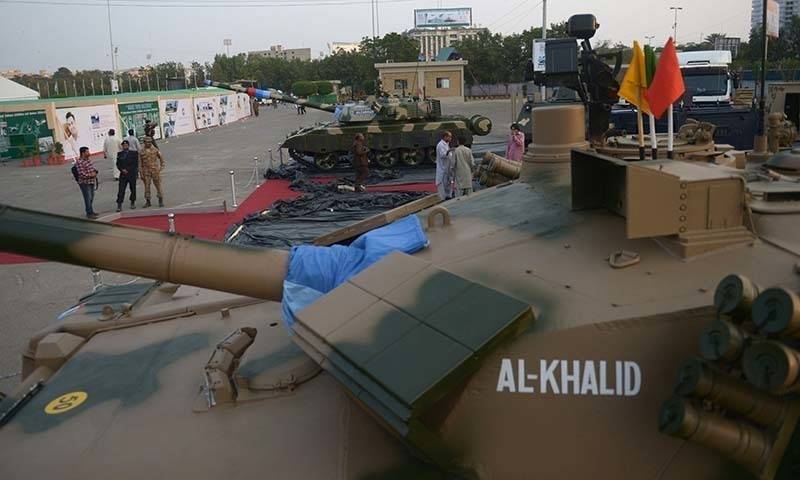Our national integrity originates from our impressions of history and society that are in the culture and in the legacy of age old civilizations. Religion likewise has enormous influence in making us what we are today. Yet the picture painted in history textbooks doesn’t depict the varied features of our character in true perspective.
The subject of official textbooks has regularly been tweaked and tinkered with by a number of players for the promotion of religious bigotry and Indo-phobia. “Suppressio veri, suggestio falsi” seems to have been the motto of these falsifiers of history.
Our history textbooks have a biased perspective of history and are full of blind spots and factual blunders, particularly where the nation’s relationship with arch-enemy India are concerned. After the 1965 Indo-Pak war, numerous exercises and chapters were brought in that disseminate hatred and disgust among the children and rendered India the biggest adversary of the Muslims. Such blatant distortion should be done away with.
During Zia ul Haq’s era, these hallucinatory courses only intensified in tandem with the increasing use of Islam and Islamic slogans of jihad and martyrdom. Tariq Rahman, a linguist and academic, writes in his book Denizens of Alien Worlds, that during Zia’s time, “Islam was used to support the state’s own militaristic policies in a way that it appeared to the readers of these textbooks that Pakistan, the Pakistan movement, Pakistan’s wars with India and the Kashmir issue were all connected not only with Pakistani nationalism but with Islam itself.”
The transfer of ideas and the imposition of state agenda over citizens harmed the very fabric of society. Growing militancy is a result of content against other religions and nations.
Since the military was performing the critical capacity of securing citizens from the enemy it turned into the citizens’ obligation to back them. The bases of this outlook which were laid in the 1970s proved so helpful amid the Afghan jihad, and later against an oft-moving adversary.
Rubina Saigol quotes a 1975 textbook: “Every Pakistani has to be a soldier. If someone cannot join the army, he can be otherwise helpful to the defenders of the country. If he is unable to carry a gun, he can at least become a member of the Hilal-e-Ahmar. If a National Guards Corps is being organized, he is the first to carry a gun. If Air Defence is being organized, he is the first to join.”
Throughout our sordid political history the looming effect of our nurturing was that only corps could command and control the whole set up. After 9/11 Pakistani textbooks turned into a subject of compound controversy as local experts and international donor agencies expanded pressure on the state authorities to expurgate the hate speech, and the glorification of war, especially jihad, from textbooks.
It is the obligation of the historiographer to see that real history is legitimately taught. Textbooks foster sentiments among the population that Pakistan’s Islamic identity is under constant threat. According to the recent study by a US government commission, “Anti-Islamic forces are always trying to finish the Islamic domination of the world,” reads one passage from a social studies text being taught to Grade 4 students in Punjab. “This can cause danger for the very existence of Islam. Today, the defence of Pakistan and Islam is very much in need.”
Successive governments did not correct this travesty. Pakistan became the victim of fossilized textbook boards ratifying the work of unethical and unscholarly authors for public school consumption. Vested interests continue to triumph despite an open door policy since 2004 for private publishers to bid for quality textbooks.
Pakistan desperately needs a new fact driven historical narrative free from conspiracy theories and fiction. If we can just focus on facts through our history books our pupils are intelligent enough to see the importance of values such as pluralism, women`s rights, respect for rule of law and many other values that drive the nation collectively to a better and saner future. It will automatically create an understanding and respect for democratic values.
The writer is a freelance columnist.
Thursday, April 18, 2024
Curricula of deception

Mehwish Hayat says she would like to work with Aamir Khan
9:59 PM | April 18, 2024
'That'll be awesome,' Rohit Sharma on idea of Pakistan vs India Test series
9:17 PM | April 18, 2024
Turkiye commends Pakistan's efforts in fostering regional peace
9:03 PM | April 18, 2024
CM Maryam's security squad hits biker to death in Narowal
9:02 PM | April 18, 2024
Hafiz Naeemur Rehman sworn in as new emir of Jamaat-e-Islami
8:54 PM | April 18, 2024
Hepatitis Challenge
April 18, 2024
IMF Predictions
April 18, 2024
Wheat War
April 18, 2024
Rail Revival
April 17, 2024
Addressing Climate Change
April 17, 2024
Justice denied
April 18, 2024
AI dilemmas unveiled
April 18, 2024
Tax tangle
April 18, 2024
Workforce inequality
April 17, 2024
New partnerships
April 17, 2024
ePaper - Nawaiwaqt
Advertisement
Nawaiwaqt Group | Copyright © 2024





